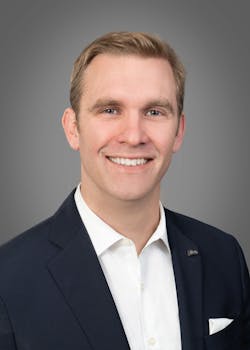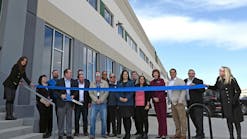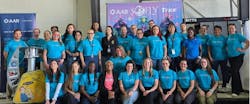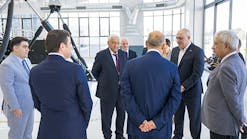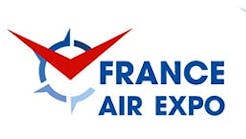Last August, I used my space in AMT Magazine to celebrate the year’s 40 Under 40 honorees by urging us all to think expansively about the ages at which individuals enter aviation careers. Using data collected by my colleagues and I through the Youth Access to American Jobs in Aviation Task Force, I explained that skilled individuals can kindle a passion for – or at least recognize the employment value in – aviation at any point in their life.
“As the Youth Task Force learned, aviation program students come in all ages,” I wrote. “Survey responses from educational institution attendees regarding when they first learned about the industry stretched all the way up to 50. At an age when some professionals are beginning long count downs to retirement, aviation gets students embarking on new career journeys.”
In December, an article posted on AviationPros.com demonstrated the other side of my “anyone fits” philosophy. The update from East Haven, Connecticut, proclaimed the “nation’s first middle school-focused aviation career exploration program” had been established between Avelo Airlines, the Boy Scouts of America, and Joseph Melillo Middle School. Whether it’s actually the first may depend on the finer details, but Avelo’s enthusiasm in its press release is both understandable and instructive.
The program curriculum includes after-classroom instruction, guest speakers, interactive learning experiences, and field trips including:
- Flying Avelo’s simulators at its Inflight Training Center in Orlando, Florida.
- Flying a single-engine aircraft in a classic “discovery flight.”
- Visiting Avelo bases for behind-the-scenes observation.
- Touring aerospace manufacturing facilities.
That’s a great lineup of extracurricular activities and a tangible demonstration of an aviation business using its resources – ones unique to its enterprise – to make an impact on students. The middle school focus shows great foresight; the airline’s investment isn’t going to pay off in new hires this year or next, but it starts a process of community engagement that will raise interest and attention for its place in New Haven (and a lot of others).
If you closely followed the Youth Task Force, you’ll recall that its mandate from Congress was to investigate pathways for high school students to aviation employment. From just about the first meeting, that limitation was effectively shelved. Twelfth grade is too late to introduce aerospace and too early to consider the end of the recruitment effort. Having written in August about pathways for older recruits, the collaboration in New Haven offers a compelling reason to turn attention to their younger counterparts.
Learning from that example, what’s the message for repair stations and maintenance personnel? Find ways to engage those around you. ARSA is routinely celebrating examples of member support for local schools, technology competitions, or other community engagement that celebrates the industry. Companies should seek out official partnerships – Congress has appropriated more money to support such efforts through the FAA’s technician workforce grant program – and individual professionals should consider how they can spread their personal impact.
Want a simple place to start? Pick up ARSA’s “homework assignment” from 2019. Using resources from the FAA’s Aviation and Space Education Outreach Program (AVSED), which has received renewed investment and attention in the past five years, take one of the agency’s suggested activities to your local school or interest group.
Teach some kids to make a paper airplane or a windmill. Tell them about everything we do to safety send real aircraft into the sky and bring them home. Explain how countless people work together to make it all happen and that you’re one of them.
You just might find yourself launching a “first of its kind” program for a one-of-a-kind industry.
Brett Levanto is vice president of operations of Obadal, Filler, MacLeod & Klein, P.L.C. managing firm and client communications in conjunction with regulatory and legislative policy initiatives. He provides strategic and logistical support for the Aeronautical Repair Station Association.